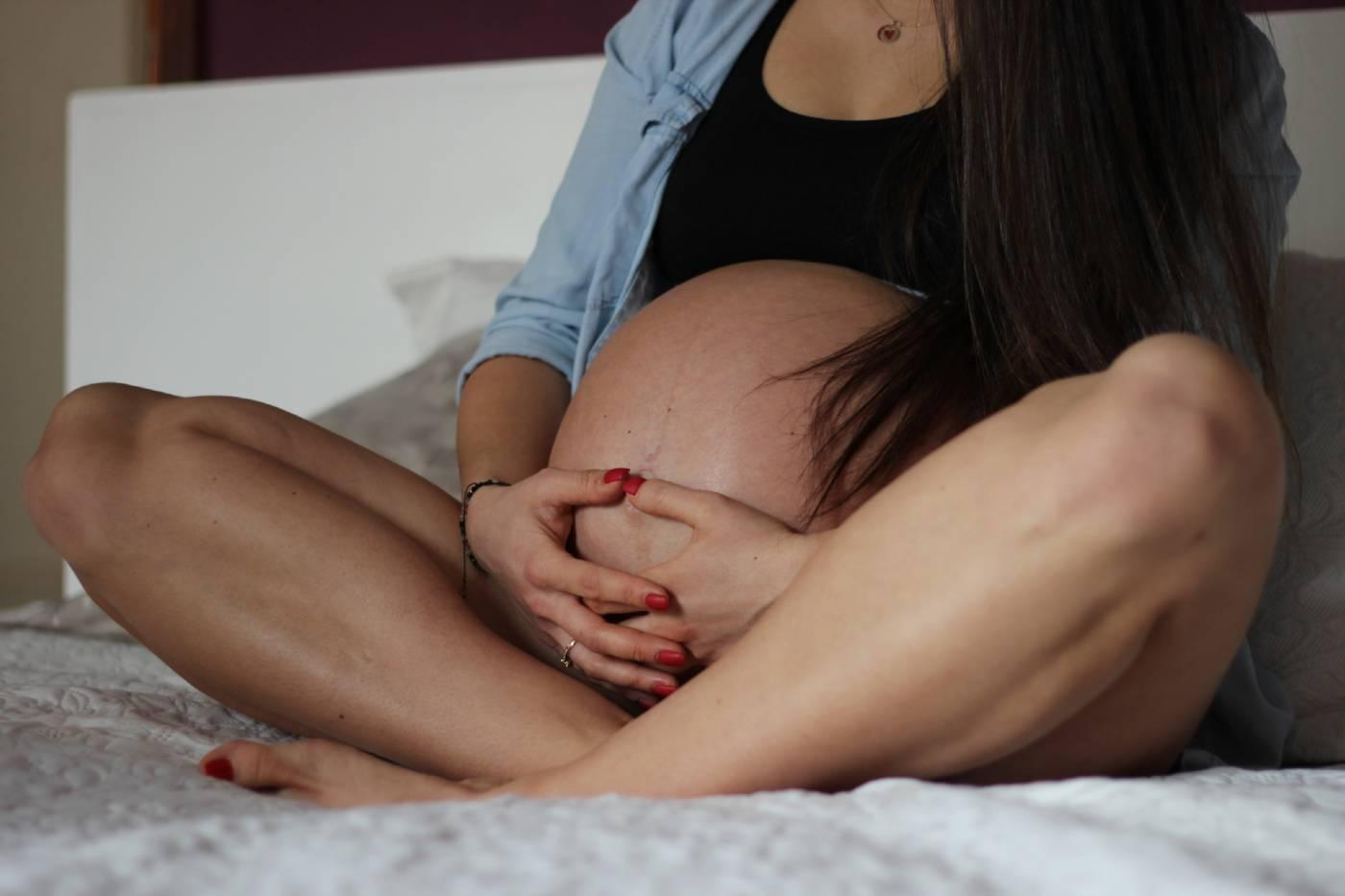PREGNANCY
Lightning Crotch: An Unexpected Pregnancy Pain
Just when you thought you knew all the pregnancy ouches, here comes a shocking surprise: lightning crotch!

Written by
Dr. Harvey Karp

Just when you thought you knew all the pregnancy aches and ouches, here comes a shocking surprise: lightning crotch!
What is lightning crotch?
With a name that sounds a little like a playground insult, lightning crotch may not seem like an official diagnosis, but it is the common term for a sudden sharp or shooting pain in the vagina, rectum, or pelvis, mostly commonly during the third trimester. While not dangerous, it can be very surprising and uncomfortable. Some women have compared the feeling to an electric shock! For others, it is more of a tingle that radiates down the legs. Luckily, the jolt usually subsides as lightning quick as it arrived.
What causes lightning crotch?
We think lightning crotch is caused by pressure from the baby on your cervix or on nerve endings in the pelvis. It typically occurs late in pregnancy and may intensify when the baby 'drops' their head down into the lower part of your pelvis. You will notice lightning crotch seems to occur when you are making a sudden movement, like getting up quickly or sneezing! Your baby’s movements…kicking, stretching…can also spark lightning crotch.
Is lightning crotch a sign of labour?
Lightning crotch on its own is not a sign of labour. For some women, those irksome zaps can come and go for weeks leading up to delivery. However, if you are experiencing it in combination with other early signs of labour…say, bloody mucus, regular contractions, back aches…then yes, it may be related to your cervix dilating (opening).
How can I tell the difference between lightning crotch and dangerous pelvic pain?
This quick sting does not last more than a few seconds and is not accompanied by fever, bleeding, or strong contractions. Any of those would be a good reason to ring up your healthcare provider or midwife.
How to reduce lightning crotch pain:
There is a Nobel Prize out there for the person who figures out how to prevent lightning crotch, but there are a few things that some mums swear by as worth trying to ease the jolt when it happens:
- Get up and move! Changing position can reduce the pressure.
- Lay down! Getting off your feet can reduce the downward pressure pinching things in your pelvis.
- Wear a belly band. For some women, a support brace helps better distribute the weight of the baby.
- Take a warm (not hot) bath or even go swimming. That weightless floating can help ease the intensity of the pressure.
- Try a pregnancy massage. If the pampering does not fix the pain, at least it will relax you.
Lightning crotch is not fun, but it is no cause for alarm. Call your healthcare provider if the pain does not go away or if other concerns pop up, such as fever or bleeding. Otherwise, take it easy and before you know it your baby will arrive…and that is the real cure for this pain in the bum.
Disclaimer: The information on our site is NOT medical advice for any specific person or condition. It is only meant as general information. If you have any medical questions and concerns about your child or yourself, please contact your health provider. Breastmilk is the best source of nutrition for babies. It is important that, in preparation for and during breastfeeding, mothers eat a healthy, balanced diet. Combined breast- and bottle-feeding in the first weeks of life may reduce the supply of a mother's breastmilk and reversing the decision not to breastfeed is difficult. If you do decide to use infant formula, you should follow instructions carefully.
SHARE THIS ARTICLE
PARENT PICKS
Bestsellers



















